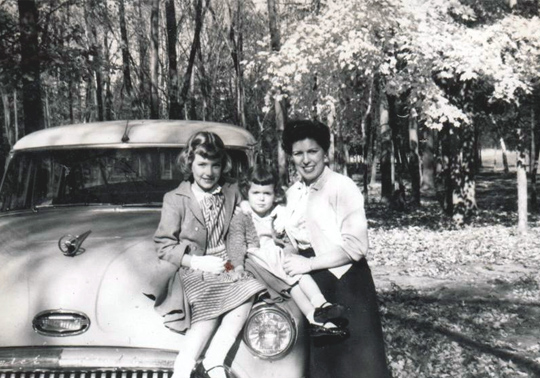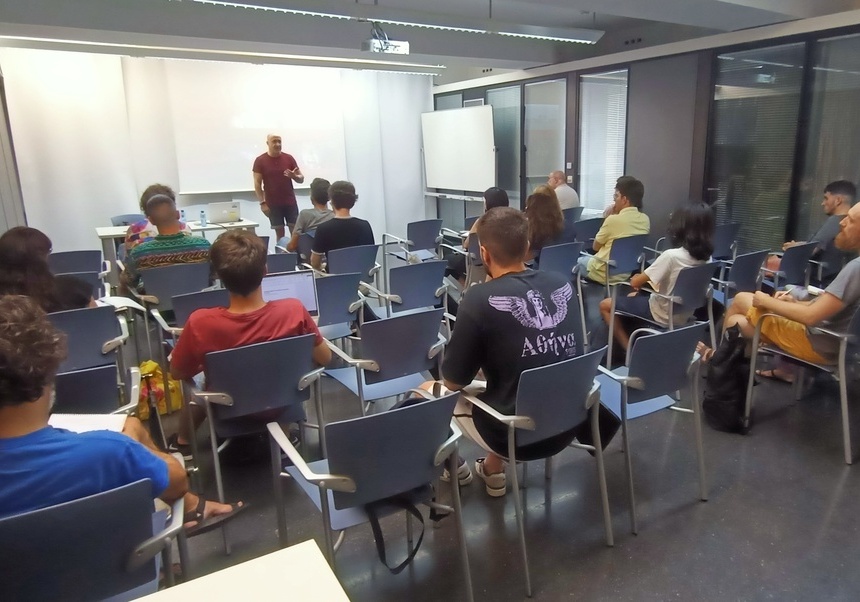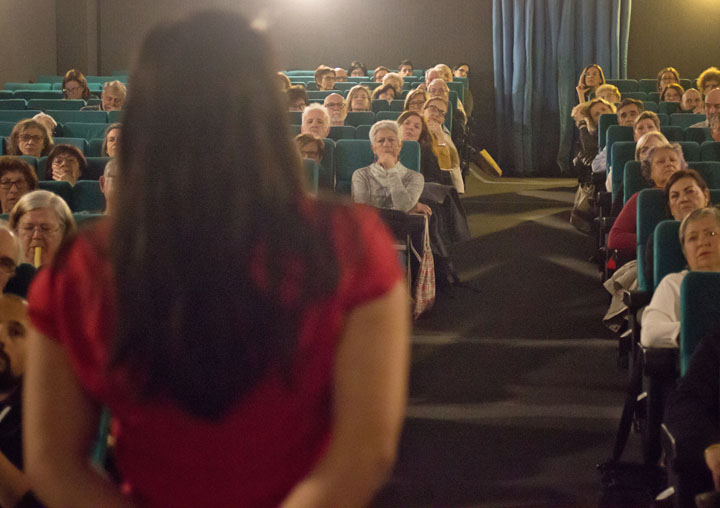The documentary ‘Els valencians d’Amèrica’ will be presented on Thursday in the Cultural Centre La Nau
- November 17th, 2016

The fourth and last part of the series ‘Del Montgó a Manhattan. Valencians a Nova York’ (From the Montgó to Manhattan. Valencians in New York) will be presented and projected in the Cultural Centre La Nau of the UV on Thursday 17 November at 19:00. It is the documentary ‘Els valencians d’Amèrica’ (Valencians in America), which tells the story of the emigrants who remained there forever, both the ones who arrived before 1920 and their descendants and the ones who arrived in the post-war period and some years later.
With this premiere it finishes a cycle which started in May 2012 and which has been used to study a phenomenon little known until that moment and to produce, with all the material located and a great quantity of unexpected stories, six hours of documentary filmmaking about the hundred years of Valencian presence in North-America.
The fieldwork carried out by InfoTV, here and in the United States, enabled the location of many cases that have helped to portrait these emigrants and to find very interesting singularities. Among the Valencians who were or are Americans there are soldiers in the Second World War, in Korea or Vietnam, as is the case of John Firmes, son of a marriage from Gata and Oliva, who tells his experience as a soldier who landed in Normandy in June of 1944; and baseball players, university professors and famous artists. But they prevail, logically, the industrial labourers, especially in the State of Connecticut. They are mainly voters of the Democratic Party and had John F. Kennedy as an idol. And the authors have even been able to interview a Valencian-American who had worked in the Twin Towers of New York who survived the 11S.
The documentary also addresses cultural, sociological and psychological questions, such as when they explain the duality which permanently live the emigrants, who have got their heart at home and their pocket in the United States. The nostalgia of the lost country urged them to create clubs and associations, which still exist in New Britain, Connecticut, which got to have more than 200 members in the 50s and 60s.
They also cure that nostalgia travelling. In many towns they still remember the first and touching summer returns of so many emigrants who, thanks to commercial aviation, could at last come back after 30 or 40 years, in time to still see their parents alive or to pay the party of the town and to show off cars, dresses and a great wad of bills in their pocket.
The durability of Valencian, under the great pressure of English, is another of the episodes of the film, which shows, in a respectful and at the same time amusing way, the most habitual interferences of English in our language, such as the one of that woman who asked her neighbour: “¿Consuelo, hui què fas per lonchar?”, substituting our “dinar” with the derived from English “lunch”.
The film, of 88 minutes, has the journalist Juli Esteve as scriptwriter and director; and the producers Esther Albert and Antoni Arnau as the ones responsible for image, edition and postproduction. It has had the support, among others, of the Institut d’Estudis Comarcals de la Marina Alta; the Macma; some 40 Valencian city halls, mainly coming from the municipalities of Marina, Safor and Ribera; the universities of Valencia, Alicante, Politècnica and Miguel Hernández, in Elche; the company Rolser; the Valencian Provincial Council and the Acadèmia Valenciana de la Llengua.
'Els valencians d'Amèrica' was released in Dénia in the month of June and from that moment on it has been watched in cinema and houses of culture in a great part of the municipalities involved. But this documentary and the three previous ones have achieved 200 projections in a hundred of Valencian towns and cities which have participated in the production or have hired the projection of the series. The documentary has been edited in a DVD where it is also offered the third episode of the collection, ‘La guerra de sempre’ (The usual war). In a previous DVD edited by InfoTV we can also find the other two films, ‘Cap a la terra promesa’ (To the Promised Land) and ‘Adéu, Amèrica’ (Bye, America). There is more information about the films and other previous works in www.infotelevisio.com
File in: Centre cultural La Nau , Cultura , Cinema
















